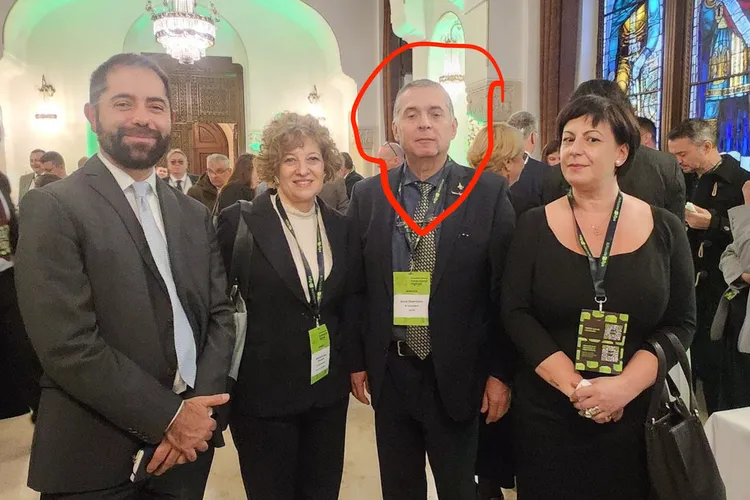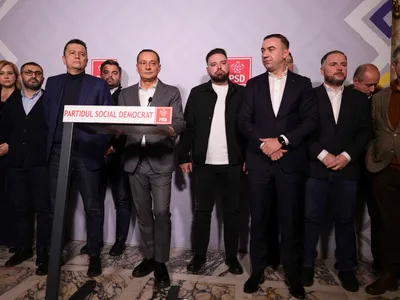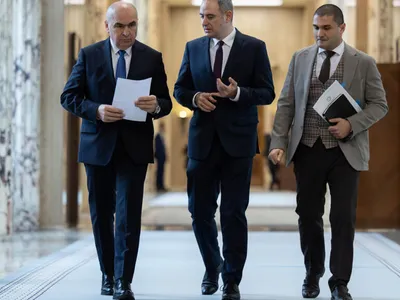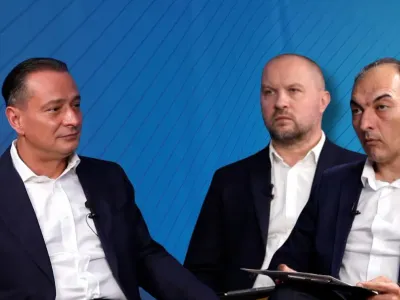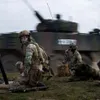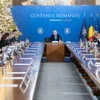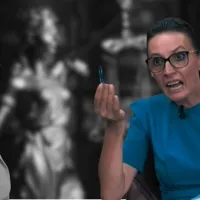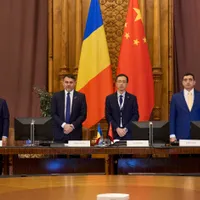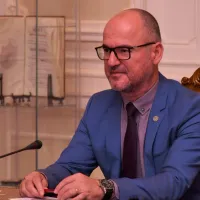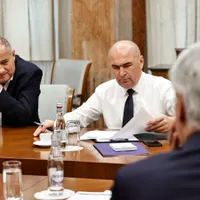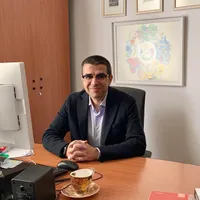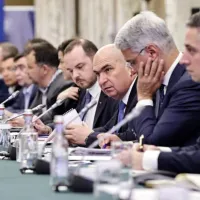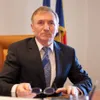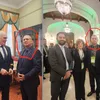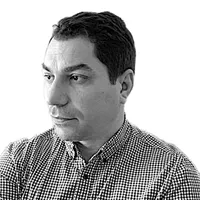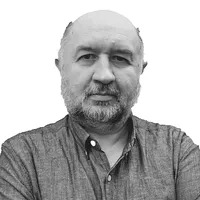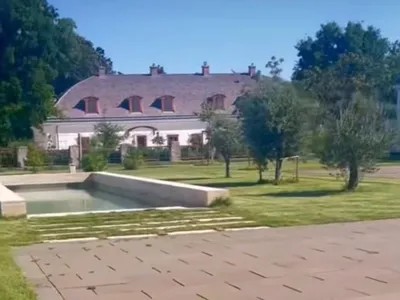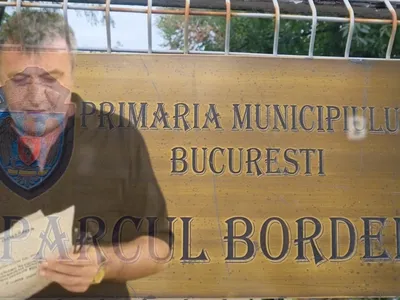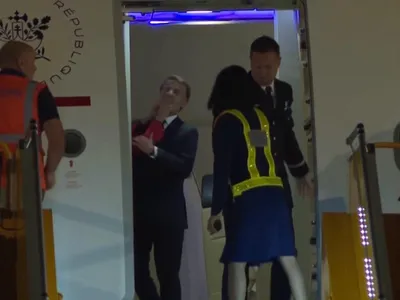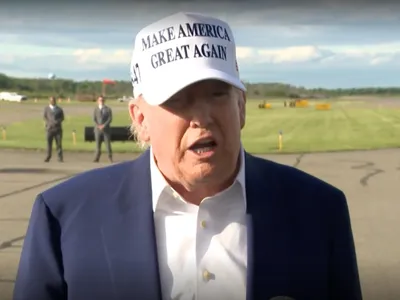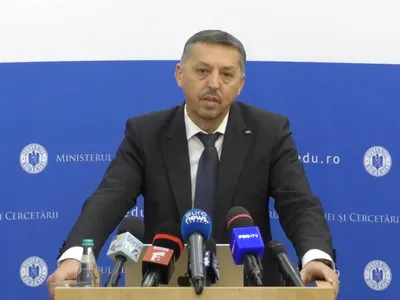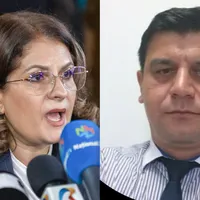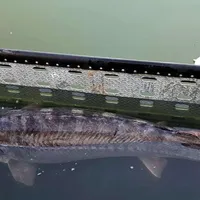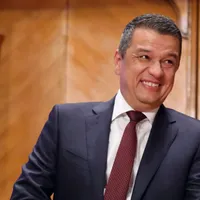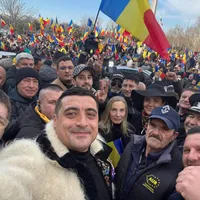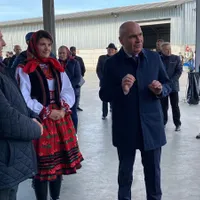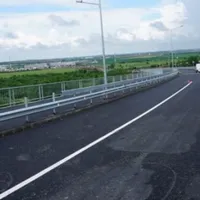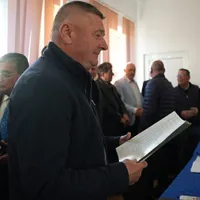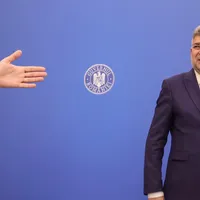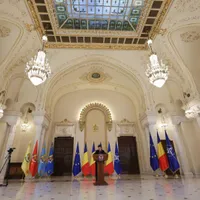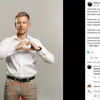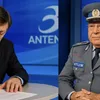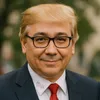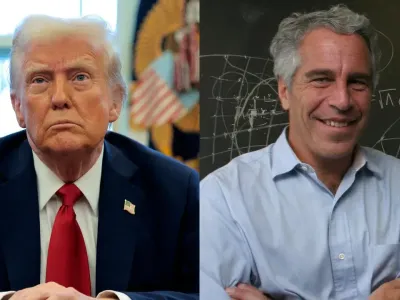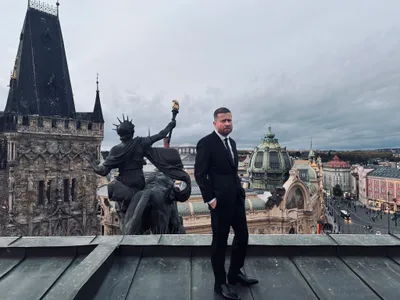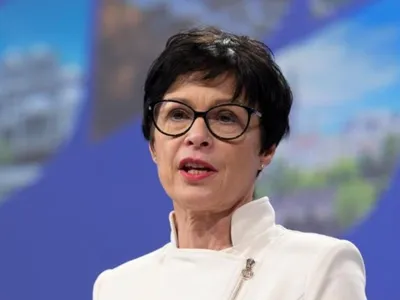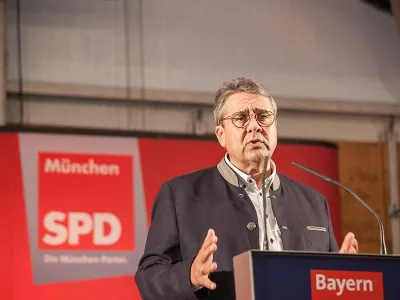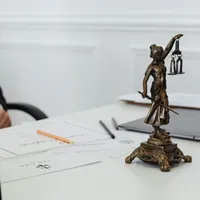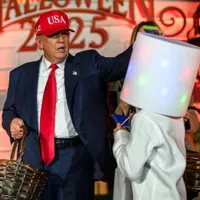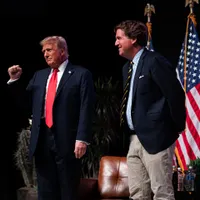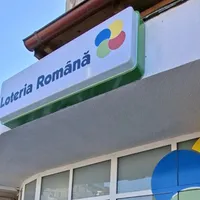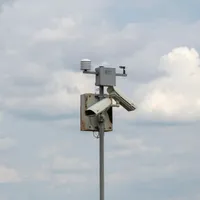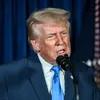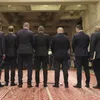EXCLUSIV Cum a intrat Dobîrcianu, fals sereist cu legături-n Rusia, la Cotroceni: s-a dat de la NATO
Sorin Dobîrcianu, falsul ofițer SRI cu conexiuni în cercul de putere al lui Vladimir Putin, a fost băgat în Palatul Cotroceni de organizatorii Summit-ului pentru Guvernanță Digitală 2025, desfășurat sub Înaltul Patronaj al Administrației Prezidențiale. Impostorul, condamnat la trei ani de închisoare pentru trafic de influență, a pretins că are legătură cu NATO. Dezinvolt, Dobîrcianu s-a fotografiat la Cotroceni cu vicepremierul Oana Gheorghiu și cu consilierul prezidențial Radu Burnete. Citește și: EXCLUSIV Fals agent SRI cu relații în cercul lui Putin și vizite în Rusia, infiltrat la Cotroceni și Romarm Episodul indică o vulnerabilitate de securitate majoră, mai ales în contextul în care falsul ofițer SRI a fost decorat cu câteva luni în urmă de oligarhul rus Vladimir Stefanovici Litvinenko, rectorul Universității Miniere din Sankt Petersburg, un susținător al invaziei ruse din Ucraina și un apropiat al lui Vladimir Putin. Summit pentru Guvernanță Digitală la Cotroceni Summit-ul pentru Guvernanță Digitală 2025 a fost organizat pe 25 noiembrie, în Palatul Cotroceni, de către asociația Edge Institute, sub Înaltul Patronaj al Administrației Prezidențiale. La eveniment au participat mai mulți politicieni, în frunte cu președintele Nicușor Dan. Printre participanți s-a aflat și Sorin Dobîrcianu, falsul ofițer SRI cu conexiuni în cercul de putere al lui Vladimir Putin. DeFapt.ro a cerut asociației Edge Institute să explice cum a ajuns Sorin Dobîrcianu să fie invitat la un eveniment de asemea anvergură, în contextul în care legăturile sale cu Rusia sunt publice pe contul său de Facebook. Dobîrcianu s-a „înscris personal pe pagina oficială a evenimentului” Antonia Duma, manager de comunitate la Edge Institute, a transmis că la eveniment putea participa orice cetățean care completa un formular pe pagina oficială a evenimentului. „Edge Institute a transmis invitații doar speaker-ilor și responsabililor oficiali ai instituțiilor din administrația centrală și locală care care desfășoară proiecte de digitalizare. Restul participanților (inclusiv persoana menționată de către dumneavoastră) s-au înscris personal pe pagina oficială a evenimentului, edgeinstitute.ro/summit, prin completarea unui formular”, a precizat Antonia Duma. Pretinde că este „Senior Lead Expert la NATO” Întrebată ce organizație a reprezentat Sorin Dobîrcianu la Summit-ul pentru Guvernanță Digitală 2025, Adreea Duma a transmis că „persoana în cauză s-a înscris din calitatea de Senior Lead Expert la NATO, informație vizibilă și pe badge-ul printat la procesul de check-in, la fel ca în cazul tuturor participanților”. Dar aceasta nu este singura calitate asumată de Sorin Dobîrcianu. Pe ecusoanele de la alte evenimente, aceste figurează cu diverse alte titulaturi: „gen. dr. Sorin Dobîrcianu”, „oficial NATO – România” sau „influencer NATO”. Mai multe solicitări în legătură cu Dobîrcianu, trimise de către DeFapt.ro pe adresa responsabililor cu comunicarea la NATO, au rămas fără răspuns până în prezent. Nimeni nu a verificat cine e Dobîrcianu Însă Antonia Duma susține că nu știa de conexiunile pe care le are Sorin Dobîrcianu în Rusia. „Nu am adresat o invitație persoanei în cauză. Fiind un eveniment public, orice persoană putea să se înscrie, în limita capacității locației. Edge Institute nu are specializarea, capacitatea fizică sau competențele tehnice să facă background check pentru sute de participanți la evenimentele publice și nici nu își propune acest lucru”, a mai spus Duma. Edge Institute este un ONG care se autodeclară „un think thank format dintr-un grup independenți de experți, uniți de viziune comună că România, prin digitalizare, poate deveni o țară prosperă, modernă”. Din conducerea asociației fac parte 11 persoane, printre care Iulian Stanciu, președintele executiv eMAG, Elisabeta Moraru, country director Google, Mihai Matei, CEO Essensys Software, Diana Stafie, fondatoarea futureStation, Manea Sergiu, CEO Banca Comercială Română. Vicepremierul Oana Gheorghiu: „Nu l-am văzut în viața mea înainte” Contactată de către DeFapt.ro, vicepremierul Oana Gheorghiu a spus că a văzut și ea fotografia în care apare alături de Sorin Dobîrcianu. „Eu nu-l cunosc pe domnul. Nu l-am văzut în viața mea înainte, nici acum nu știu cine e. Am fost la un eveniment despre digitalizare la Cotroceni, unde am avut și un panel, am participat într-un panel. În pauză, domnul a apărut între noi, s-a făcut o fotografie. Nu cred că am schimbat mai mult de trei, patru cuvinte din politețe. Domnul a apărut între noi și a făcut o poză. Dar, știți cum e, cred că am făcut în ultima perioadă sute de poze. Nu-i întreb cine sunt sau ce... Nu îmi aduc aminte faza exact. Știu că stăteam de vorbă și a apărut între noi. Am înțeles că este un personaj cu niște probleme. Cum a ajuns el acolo, nu înțeleg. Eu nu sunt organizator de evenimente la Cotroceni. Eu am fost invitată de Edge Institute”, a declarat vicepremierul Oana Gheorghiu pentru DeFapt.ro.
